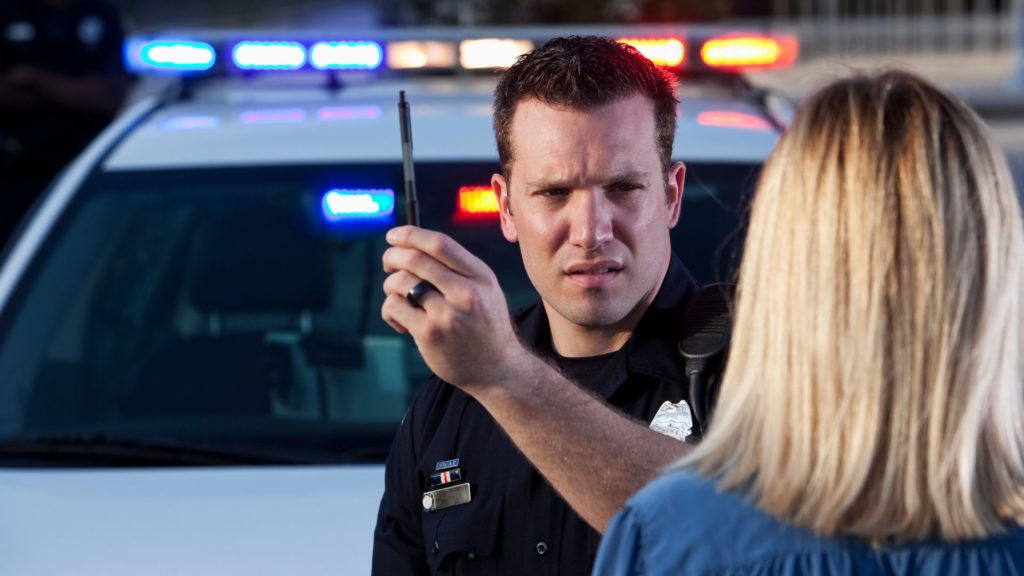Getting pulled over by the police can be a stressful experience; the flashing lights and sirens can make anyone nervous. Hopefully, it’s only a simple problem, but sometimes the situation can escalate, especially when a police officer suspects the driver is impaired. The police may even ask them to take a field sobriety test, and the driver is left wondering if they should comply or if they’re even allowed to refuse. In this article, McClintock Law will explain what a field sobriety test is and the reasons why a driver may want to refuse the test.
Key Takeaways:
As a driver in Illinois, you deserve to know your rights if asked to take a field sobriety test.
- First, there are three different types of field sobriety tests – horizontal gaze nystagmus, walk and turn, and the one-legged stand test.
- Second, drivers are legally allowed to refuse to take a field sobriety test, unlike breath tests which must be taken.
- Third, there are numerous reasons a driver should refuse to take a field sobriety test including that they are never beneficial to the driver.
What Is A Field Sobriety Test?
A field sobriety test is conducted by a police officer when a driver is suspected of driving under the influence. There are three different types of field sobriety tests that the police officer may attempt to conduct:
- Horizontal Gaze Nystagmus Test: a police officer slowly moves an object roughly a foot in front of the driver’s face and asks them to follow it with their eyes while not moving their head.
- Walk and Turn Test: the driver walks heel-to-toe in a straight line, turns around on the line, and returns walking heel-to-toe.
- One-Legged Stand Test: the driver stands on one foot while counting to thirty.
These three most common types of field sobriety tests are regularly utilized by police officers when impaired driving is suspected.
Can I Refuse To Take A Field Sobriety Test?
Drivers can refuse to take a field sobriety test in Illinois. Each of the three field sobriety tests can only be conducted with the individual’s consent. Drivers are also tested for their ability to drive while under the influence of alcohol by chemical tests. The most common chemical tests administered to suspected impaired drivers are breath tests. Refusal of a breath test, like a breathalyzer, means drivers will face severe repercussions, including large fines and license suspension.
Should I Refuse To Take A Field Sobriety Test?
It is essential that Illinois drivers understand they have a right to refuse a field sobriety test. Field sobriety tests are subjective, and when conducted by a police officer who may already suspect a driver of being intoxicated, the tester may already be bent toward finding incriminating evidence. Furthermore, field sobriety tests can provide additional evidence against the driver that the police can use. A field sobriety test is a way for police officers to confirm their suspicions, but it does not prove that someone was driving while intoxicated. Therefore, drivers in Illinois should consider their rights when asked to take a field sobriety test.
At McClintock Law, we want you to know your rights no matter what the situation. As some of the leading lawyers in Warren County, Illinois, we pride ourselves on giving our clients the best care and attention. If you find yourself in a situation where you need a defense attorney, don’t hesitate to reach out to McClintock Law. Call (309)715-7181 for a free consultation now!





